
Production in Khorasan, Lordegan, Kermanshah, Zagros, Sabalan, Kimia Pars, and many other urea and methanol petrochemical plants has dropped to zero; why? Because the only prescription of all governments to overcome the gas crisis is to close the gas valve of petrochemical plants.

The CEO of Kharg Petrochemical Company considered the assignment of utility pricing to the National Petrochemical Industries Company after several years as confirmation of the Ministry of Oil's special view of the private sector, saying: "This measure can increase investor confidence and pave the way for the development of new projects."
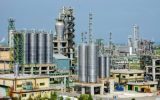
The Deputy Chairman of the Energy Commission of the Islamic Consultative Assembly considered the transfer of arbitration in pricing ancillary services to the National Petrochemical Industries Company as an effective solution for further developing this industry, and said: Iran has a suitable capacity for expanding complementary petrochemical industries, and if it moves towards balanced development, significant benefits can be achieved.
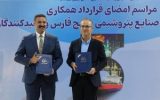
The Petrochemical Company of Khuzestan and Raymond Suren Part Company signed a cooperation contract to construct mechanical silos for the Petrochemical Complex of Khuzestan.

Kermanshah Petrochemical Company recorded a brilliant performance this September, with a remarkable 96% growth in total production compared to the same period last year. This increase in urea and ammonia production contributed to the company's profitability, bringing its sales close to 3 trillion تومans.
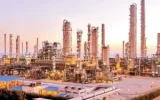
Marun Petrochemical has witnessed a significant increase in its production compared to last year's September, with a positive performance this year. The company has achieved this growth by increasing its total production volume by 11%, paving the way for higher sales and revenue generation

Bandar Imam Petrochemical, the beating heart of the downstream chain of Iran's petrochemical industry, is currently facing a $1.4 billion project; a project that, in relation to the company's 8 trillion tomans profit, has raised serious questions about the economic logic, financing method, and the silence of Persian Gulf Holding.
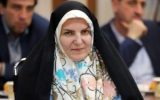
Emphasizing the strategic role of the petrochemical industry in the country's economy, the presidential adviser on economic cooperation announced: by facilitating investment processes, eliminating bureaucracy and using micro-currency capital and the capacity of knowledge-based companies, the petrochemical industry can become one of the most important drivers of wealth creation and economic growth in Iran.
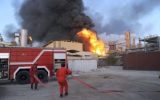
Today, one of the cooling fans of Abadan Petrochemical Unit 200 caught fire.
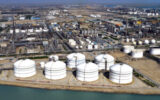
Persian Gulf Petrochemical Industries Holding, as the second largest petrochemical holding in the Middle East and the largest player in this industry in Iran, plays a key role in meeting domestic needs and the international standing of this industry, with more than one-third of the nominal capacity of the country's petrochemical industry.










